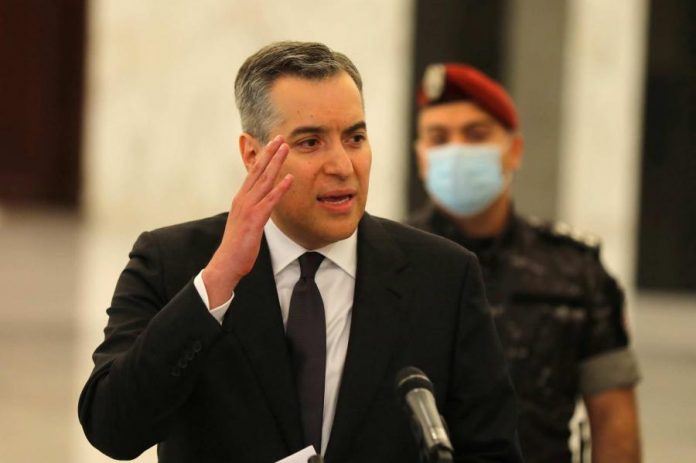The Lebanese Prime Minister-designate announced on Saturday that he would renounce, for lack of consensus, forming a new government to save the country from one of the worst economic crises in its history almost two months after the explosion at the port of Beirut.
“I apologize for not being able to continue the task of forming the government,” Moustapha Adib said during a press briefing at the presidential palace, apologizing to the Lebanese for his “inability” to achieve their “aspirations for a reformist government”.
But “as the efforts to form the government were reaching their goal, it became clear to me that this consensus no longer existed,” said Moustapha Adib.
The Lebanese political parties pledged at the beginning of September, during the visit of French President Emmanuel Macron, to form a “mission” cabinet made up of “competent” and “independent” ministers within two weeks to leave the country.
Emmanuel Macron is due to speak on Sunday at a press conference on the political situation in Lebanon, according to the French presidency. “If the promises are not kept by October, there will be consequences,” he warned in September in Beirut.
The Lebanese government resigned following the devastating explosion at the port of Beirut on August 4 that left more than 190 dead and more than 6,500 injured, also devastating entire neighborhoods of the capital.
Appointed on August 31, Mustapha Adib was committed to reforms called for by the international community to unlock billions of dollars in aid.
However, his efforts were hampered by the demands of two Shiite formations, Hezbollah, heavyweight in Lebanese politics, and its ally Amal, led by the head of Parliament Nabih Berri, who demanded the finance portfolio.
Observers say the Shia tandem’s stubbornness is linked to recent US sanctions against an Amal party minister and two Hezbollah-affiliated companies.
End of the French initiative?
For his part, President Michel Aoun “accepted” Moustapha Adib’s renunciation, saying that he “will take (it) the appropriate measures in accordance with the requirements of the Constitution”.
The head of state must now hold parliamentary consultations to appoint a new prime minister.
“The initiative launched by French President Emmanuel Macron is still ongoing and enjoys all my support,” said Michel Aoun, referring to the roadmap put in place by Paris for the end of the crisis.
The leader of the parliament, Nabih Berri, considered one of the main players in preventing the successful completion of the training process, also welcomed President Macron’s initiative.
“No one supports the French initiative as much as we do, but there are those who drowned it,” he said, returning the ball to the opposing court.
But in political, diplomatic and social media circles, the reactions, often virulent, were not long in coming.
“It is unfortunate to circumvent the opportunity that was offered to Lebanon,” lamented former Prime Ministers Fouad Siniora, Tamam Salam and Nagib Mikati in a joint statement.
“We say to those who applaud the fall of the initiative of French President Emmanuel Macron today, that you will bite your fingers,” warned for his part former Prime Minister Saad Hariri, who had returned his apron in last October under pressure from the streets.
“Such a degree of irresponsibility, when the fate of Lebanon and its people is at stake! Politicians, have you really sabotaged this unique opportunity created by France?” The UN Special Coordinator for Lebanon, Jan Kubis, protested on Twitter.
Lebanon has been experiencing for a year one of the worst economic, social and political crises in its history, marked by a collapse of its national currency, hyperinflation and large-scale impoverishment of the population.
The crisis was amplified by the Covid-19 pandemic and the August 4 explosion, which catalyzed the mobilization of the international community.
On Monday, Michel Aoun warned that Lebanon was heading towards “hell” if a new government was not formed as soon as possible.

